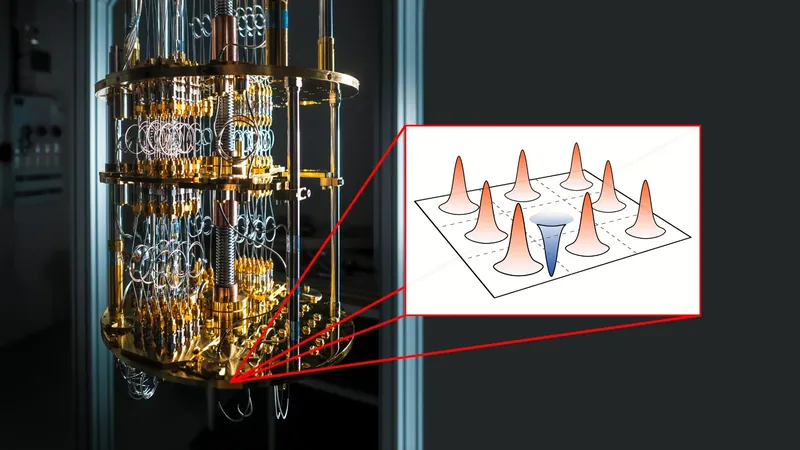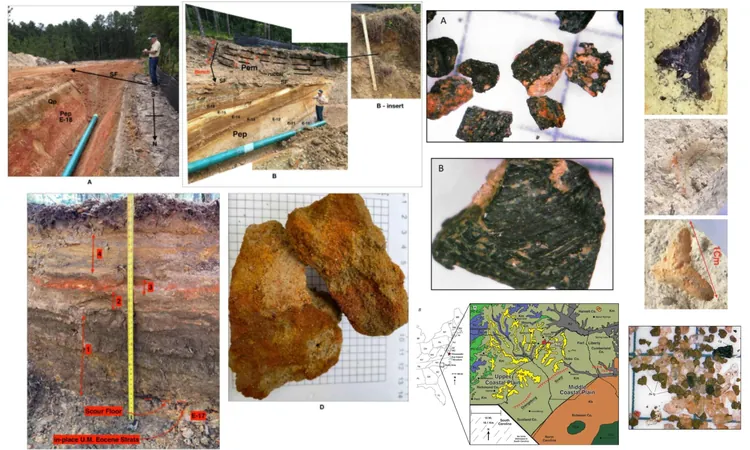
Breakthrough in Quantum Computing: Scientists Find Way to Simulate the 'Impossible' Error-Correcting Code!
2025-07-03
Author: Sarah
Quantum computers are on the cusp of revolutionizing industries, from medicine to artificial intelligence. But there's a significant hurdle that stands in their way: the pesky errors that can derail calculations. Unlike traditional computers, where correcting errors is a well-trodden path, quantum computers face a storm of complexities that make error detection and correction challenging. They are simply not fault-tolerant yet!
To tackle this dilemma, teams of researchers from across prestigious institutions—Chalmers University, the University of Milan, University of Granada, and the University of Tokyo—have unveiled groundbreaking methods to simulate quantum computations more efficiently than ever before. This is a game-changer, especially for error correction, which is essential for building robust quantum systems.
What Makes Quantum Computing So Complicated?
At the heart of quantum machines are qubits, the building blocks that offer astounding computational power through a phenomenon known as superposition. Essentially, qubits can hold multiple states at once, but this extraordinary potential comes at a high price—they are incredibly sensitive to environmental disturbances. Just a slight nudge from noise or temperature changes can throw them off course. As a result, the struggle for error correction becomes a critical focus for researchers.
The Challenge of Error-Correcting Quantum Computations!
Error-correcting codes are vital because they help distribute information across multiple levels, enabling the identification and fixing of mistakes without losing any quantum data. One innovative approach is the bosonic code, which utilizes various energy levels in a vibrating system. However, simulating these computations has proven to be a monstrous challenge until now.
A New Dawn for Quantum Simulation!
The breakthrough comes in the form of an innovative algorithm developed by the research team that simulates quantum computations using the Gottesman-Kitaev-Preskill (GKP) code—a key player in effective quantum error correction. This newly developed method enables researchers to accurately simulate the intricate error-correcting computations that had previously eluded conventional computers.
According to Cameron Calcluth, a leading author on the study, "Our discovery allows for simulations that can now apply robust error correction codes. This advancement is crucial in developing high-performing and reliable quantum computers of the future."
Revolutionizing Quantum Computing!
With this new mathematical tool at hand, researchers can test and validate calculations in ways they could only dream of before. Giulia Ferrini, another co-author, emphasizes that this breakthrough facilitates the simulation of circuits critical for building stable, scalable quantum systems. The study has been published in the prestigious journal *Physical Review Letters*, paving the way for a new era in quantum research—one marked by the ability to push the boundaries of what we thought was possible in quantum computation!



 Brasil (PT)
Brasil (PT)
 Canada (EN)
Canada (EN)
 Chile (ES)
Chile (ES)
 Česko (CS)
Česko (CS)
 대한민국 (KO)
대한민국 (KO)
 España (ES)
España (ES)
 France (FR)
France (FR)
 Hong Kong (EN)
Hong Kong (EN)
 Italia (IT)
Italia (IT)
 日本 (JA)
日本 (JA)
 Magyarország (HU)
Magyarország (HU)
 Norge (NO)
Norge (NO)
 Polska (PL)
Polska (PL)
 Schweiz (DE)
Schweiz (DE)
 Singapore (EN)
Singapore (EN)
 Sverige (SV)
Sverige (SV)
 Suomi (FI)
Suomi (FI)
 Türkiye (TR)
Türkiye (TR)
 الإمارات العربية المتحدة (AR)
الإمارات العربية المتحدة (AR)